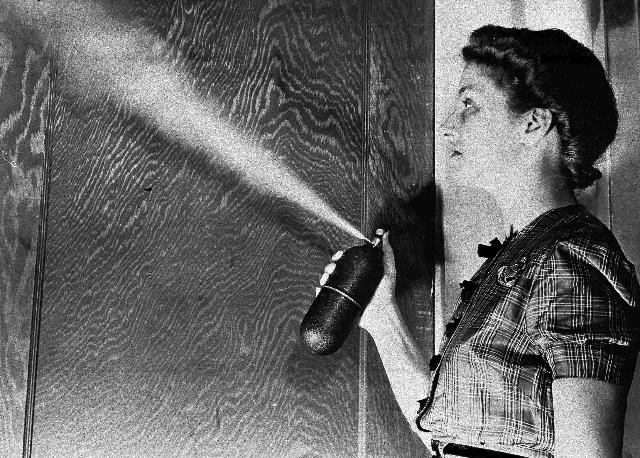
In the News
DDT in Pregnancy May Raise Breast Cancer Rates in Daughters
-
Focus Areas
Environmental Health -
Issues
Reproductive & Sexual Health -
Expertise
Research – Surveillance -
Programs
Child Health and Development Studies

NBCnews.com:
Women whose mothers had higher levels of DDT in their blood while pregnant were nearly four times more likely to develop breast cancer as adults, a new study finds.
The report provides one of the strongest links yet between exposure to DDT – still widely used globally – and cancer. It’s especially reliable because the researchers found 50-year-old blood samples to show how much DDT was in the pregnant women’s systems, rather than rely on possibly faulty memories or other indirect measurements.
“Environmental chemicals have long been suspected causes of breast cancer, but until now, there have been few human studies to support this idea,” said Barbara Cohn of the Public Health Institute in Berkeley, California, who worked on the study.
“This 54-year study is the first to provide direct evidence that chemical exposures for pregnant women may have lifelong consequences for their daughters’ breast cancer risk.”
Breast cancer affects more than 200,000 women a year in the United States, and kills more than 40,000. Most cases are sporadic — there’s no direct known cause. Obesity, poor diet and a lack of exercise are very strong factors, and there are some genetic mutations that greatly raise the risk.
And while women often fear that environmental contaminants may raise the risk, there are only a few studies that show chemicals do affect it. The chemicals in cigarette smoke are a known risk factor, as is the drug DES, used in the 1950s and 60s to prevent miscarriages.
One study showed that women who worked with certain cancer-causing solvents also have a higher risk. But no study has so strongly demonstrated that DDT can raise the risk.
“Currently no direct evidence links in utero dichlorodiphenyltrichloroethane (DDT) exposure to human breast cancer,” Cohn and colleagues wrote in their report, published in the Journal of Clinical Endocrinology and Metabolism.
If their findings hold true, the consequences could be far-reaching, they said.
“Many women were heavily exposed in utero during widespread DDT use in the 1960s. They are now reaching the age of heightened breast cancer risk,” Cohn’s team wrote.
“DDT exposure persists and use continues in Africa and Asia without clear knowledge of the consequences for the next generation.”
Read the full article on NBCnews.com.
This study was picked up by many other media outlets. Read stories from The Washington Post, Forbes, TIME Magazine, National Geographic, CBS News, Fox News, PRI’s Living on Earth and Le Monde.
More Updates
Work With Us
You change the world. We do the rest. Explore fiscal sponsorship at PHI.
Support Us
Together, we can accelerate our response to public health’s most critical issues.
Find Employment
Begin your career at the Public Health Institute.



